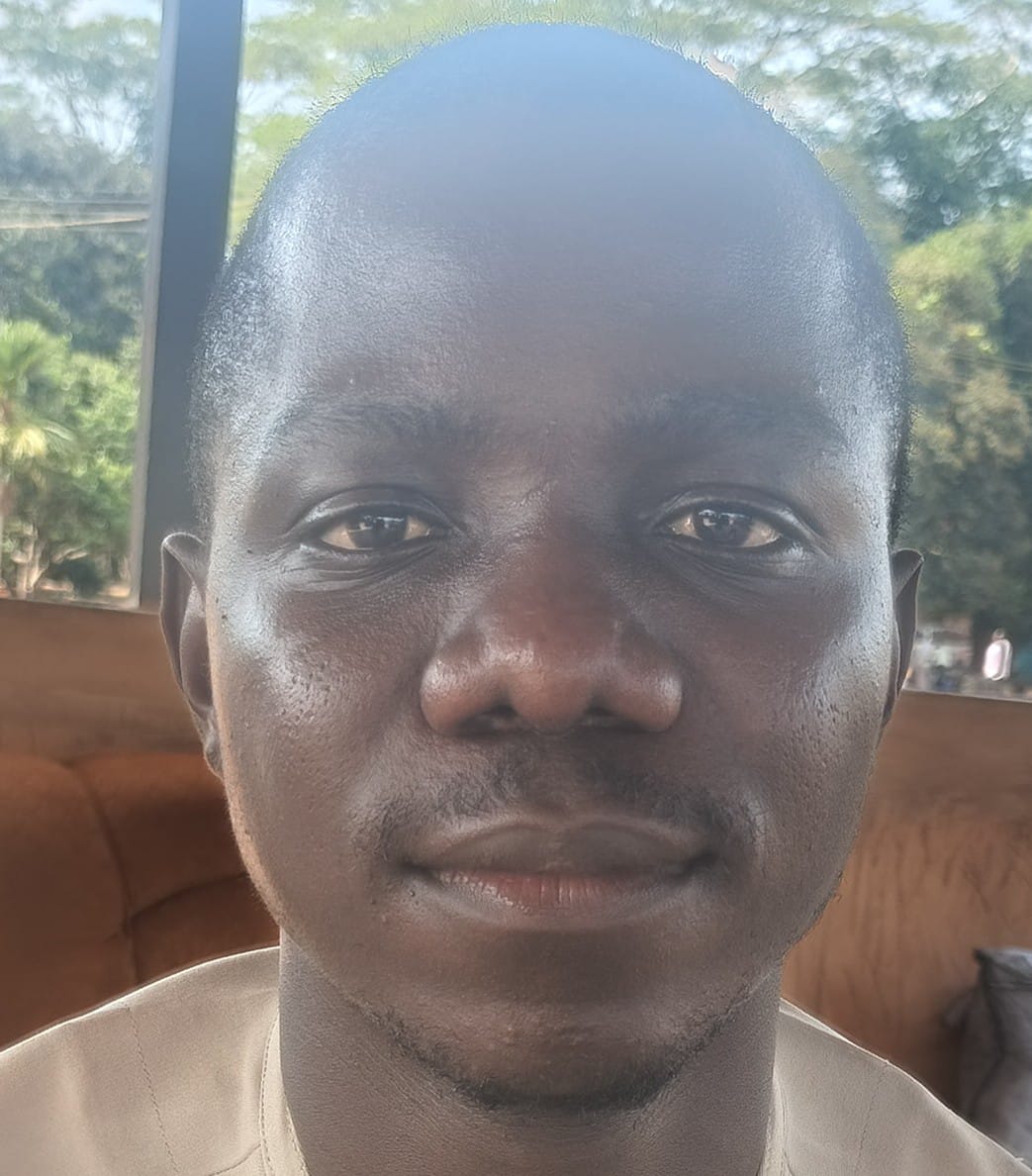By Lasisi Olagunju
Sports, especially football, have opiatic effects on Nigerians. I call it kinetic booze. The ongoing Africa Cup of Nations (AFCON) football competition has been remarkable in numbing the people’s terrible pain and pangs of hunger. Since this thing started, morbid fears of violent death and of mass abduction get forgotten every night in sporty ecstasy. “Let’s give them opium, and let them sleep and dream.” That is from Miguel de Unamuno’s Don Manuel, a fictional Catholic priest with no belief in afterlife but who keeps himself happy doing good. We kill our misery drinking football to stupor. We dream of winning the next match and the next with the cup of victory. We are happy. The government should be happy too – and I think it is. Like all festivals, however, this season must end – and it will on Sunday, 11 February. But then, government won’t be government again if it does not have for the people another means of “illusory happiness.”
But what is at stake in AFCON’s semifinal match on Wednesday between Nigeria and South Africa is more than football. Every goal scored by either side will go to settling some mordant scores. We watched the AFCON quarter final match between tiny Cape Verde and big South Africa on Saturday night. Was that really a match between those two? Nigerians took it as their war; they say South Africans are not our friends. We invested money, men and emotions in their freedom from apartheid. We lost every kobo of those investments. The harvest from that field has been barns of hurtful engagements on all fronts. They do not hide their disdain for us; they dislike us – in sports and in politics, in business and in everything.
From banking to pay TV to food retailing, and from telecom to sports, Nigeria and South Africa have teams slugging it out. In football, South Africa’s Bafana Bafana will face Nigeria’s Super Eagles in the AFCON semifinal on Wednesday at 6pm. In telecoms, the fixture has always been Nigeria’s Globacom versus South Africa’s MTN. They play in Nigeria and have played in Ghana. I think they play in a few other places. It has been intriguingly tough for the Nigerian side but it is significant that Glo has diligently manned the post to the anger and discomfort of the competition from outside. When mobile telephony was launched here in 2001, we were stunned that we made one second’s call and paid for 60 seconds. Nigerians grumbled, they whined and complained. We demanded that we should be billed based on our consumption. A strong pushback, led by MTN, said no, billing per-second was not possible here – but it was possible in South Africa where it came from. We were helpless until 2003 when indigenous Globacom came in and set us free from the snares of the alien.
FROM THE AUTHOR: OPINION: Ibadan Blast, Makinde And Federalism
Trapped tigers when freed feed on their helpers. That is why we say ingrates are not better than thieves (Eni t’a se l’óore tí kò dúpé, bí olósà kóni l’érù lo ni). We push delicious bush meat to them, they unleash on us snakes. People have died; people have lost valuable investments in South Africa just because they are Nigerians. When President Bola Tinubu and South Africa’s Cyril Ramaphosa met at the United Nations headquarters in New York in September last year, they hugged as brothers and their countries as friends. But, “what greater wound is there than a false friend” (Sophocles). Even in international relations and politics, friendship should be a two-way street. Here, it is breached. A Nigerian diplomat was quoted by Paris-based English quarterly magazine, The Africa Report in its September 2023 edition as saying that “there are over 100 South African businesses in Nigeria” but “there are less than 10 registered Nigerian companies in South Africa.” The magazine goes further to note that “several Nigerian businesses have experienced little success in South Africa and exited.” It gave examples. Every fair and foul move you see on the football field of play is displayed across other sectors where Nigeria and South Africa engage. In most cases, the Nigerian side always loses because of unfair deals -and because of the Nigerian state’s peculiar I-don’t-care attitude to such challenges.
There is this character, Wago, in Elechi Amadi’s The Great Ponds. Wago is a fearsome, fearless champion who does not fight fair. He does everything to have his way: he bullies, he threatens, he does sorcery. He does not say sorry and will not beg whenever he is proven wrong; even his plays are hard tackles. “I am Wago, the leopard-killer,” boastful and haughty, he tells his terror-stricken listeners. He thinks his strength represents his village’s superiority over the other villages. He sets out to subdue his opponents and hoists up his community as the ultimate dispenser of favours. And he has had his way many times. Now, he must fight this war over the great ponds of Wagaba. Wago has an old rival to fight and settle all claims, once and for all. If his rival falls, he rises above all men, and his village becomes the exclusive owner of the ponds that serve all. The story ends with Wago and his land failing, disastrously – a victim of his own dark ways of doing the business of war.
Powerful entities, countries, strong men and their ways always lead me to Wago’s story. South Africa brought the long word ‘xenophobia’ into my consciousness. And, I am not alone. In business, they loathe, bully and muzzle whatever is Nigerian – even on our own soil. They milk us right here – how much was your DSTV subscription three months ago? How much is it now? Their telecoms foothold here, MTN, what is your experience doing business with it? Television station owners in Nigeria should also have stories to tell of their experiences with their South African host. So, it was not a surprise to see Nigerians on Saturday fully backing Cape Verde in wishes and prayers against South Africa. My friends who supported South Africa said they did so not out of love. They said Nigeria peeling and munching the Bafana Bafana in the semifinal would be sweet revenge for that country’s past and present monkeying acts. Another friend who has relations in South Africa did not want Nigeria to face that country in the semifinal “because we will defeat them and our people may be targets of attacks in South Africa.” But, for how long will that fear alter the direction of our supplication?
FROM THE AUTHOR: OPINION: Abuja And The Two Nigerias
What they do to us here, we dare not do to them there. I maintain more than one telephone line because my job demands that I do. I have a Glo line and an MTN line. I have one other. Two weeks ago, my MTN line stopped working. The company said the line was barred because I had not linked the SIM with my NIN. But that was a lie. I did that a long time ago – the same day I linked my Glo line which is still working – perfectly. It turned out that I was just one person out of millions of Nigerians who suffered that barring of lines. While the problem was across all service providers, the difference has been in how customers are treated. The unjust penalty was not the biggest headache victims have had to contend with. Getting it fixed is a pilgrimage of sorts to the way the behemoth from South Africa treats its Nigerian customers. It has been a yellow-fever experience for millions everywhere they go. At all the centres where I went to try to do as I was ordered, I met people under the searing rays of the sun – waiting for attention. They are still there in tens and scores, suffering and sweating. I finally got my line fixed on Friday but I will be naive to think that it will not happen again.
The Ogiyan of Ejigbo in Osun State, Oba Omowonuola Oyeyode Oyesosin, who clocked 50 years on the throne a few days ago, is one of the deepest speakers of Yoruba language I have (yet) met. About a decade ago, he told me that people who are too big for reprimand will ultimately ruin their society (a tóbi má se é bá wí, wón máa nba ìlú jé ni). South Africa is big in everything good and bad. Until 1989, it was a nuclear power on the African continent. I remember I joked with my friends when in October 2015, the Muhammadu Buhari regime slammed a $5.2billion fine on MTN for failing to disconnect unregistered phone lines. I told my friends that if at all anything would be paid, the money would not come from the South African pocket. I told my friends that they and all other Nigerians who were on that network would pay the fine. Reports said the company eventually negotiated its way out, settling Nigeria with $1.7billion. But, who really paid? Certainly, Nigerians. And the practice that led to that fine, was it fixed? If it was properly fixed, my line and millions of others would not be axed two weeks ago. The same company recently declared a trade dispute with Globacom over interconnectivity fees. MTN claimed N7.05 billion from Globacom; Globacom fought back with counterclaims. A threat to disconnect Glo lines was made and was rebuffed by the threatened. The Bola Tinubu government did well here; it intervened and asked both parties to do reconciliation. Reports say the reconciliation exercise brought the figure down from N7.05 billion to N2.3billion. I had thought that hyperbole existed only in literary and rhetorical heavens. However, with this, I could see that making exaggerated claims can serve as havens if you are big enough. But, should there not be consequences for such a hand-of-God attempt at scoring a goal against an opponent? There will be none. We are dealing with a well-heeled pampered behemoth here.
FROM THE AUTHOR: OPINION: For Nigerian Soldiers And Judges
If you call your food bowl a po, your neighbour will poo into it. It is how you dress that you will be addressed. We allow free-range hunters to poach our elephants. And, because big misfortunes have wrestled down the giant, small ones are finding the courage to play with its balls. Someone said it wasn’t only in Nigeria they do what they do. They say business cemeteries in Ghana, Iran, Afghanistan, Syria, etc contain skulls of those who dared the powerful. For too long, we’ve played soft with South Africa and its twigs. We’ve got wounded and stretchered off the field. That is not how to win against a team of bullies. There should be reciprocal gestures – you bite me, I bite you. A country that will survive and be respected will protect its own and, while dealing with the outside, do as Niccolo Machiavelli counseled: Act as “a true friend and a true enemy” at the same time.
The AFCON semifinal match coming up on Wednesday is a metaphor for settling scores. People who think they are powerful wear the costume of the gods. They toy with the rules and do whatever they like without consequences. Powerful persons and entities are gods; impunity is their turf. Whatever they do, you can’t call them to account. That is why they are gods – they are pampered with sweets of unquestionableness. South Africa, a country beautified with our feathers, with its businesses, does that with us routinely at home and abroad. As of 2019, official records in Nigeria showed that we lost 118 lives to xenophobic attacks in South Africa, 13 by the South African police. I do not have more current figures. That country looks down on us with disgust because we indulge it – even when the field of play is built on our soil. My history teacher in secondary modern school took me through the stories of imperial Rome, Hannibal, Carthage, the three Punic Wars and delenda est Carthago – the patriotic, defiant phrase which ended Cato’s every speech in the senate. Defeating South Africa on Wednesday will serve some poetic justice.




























